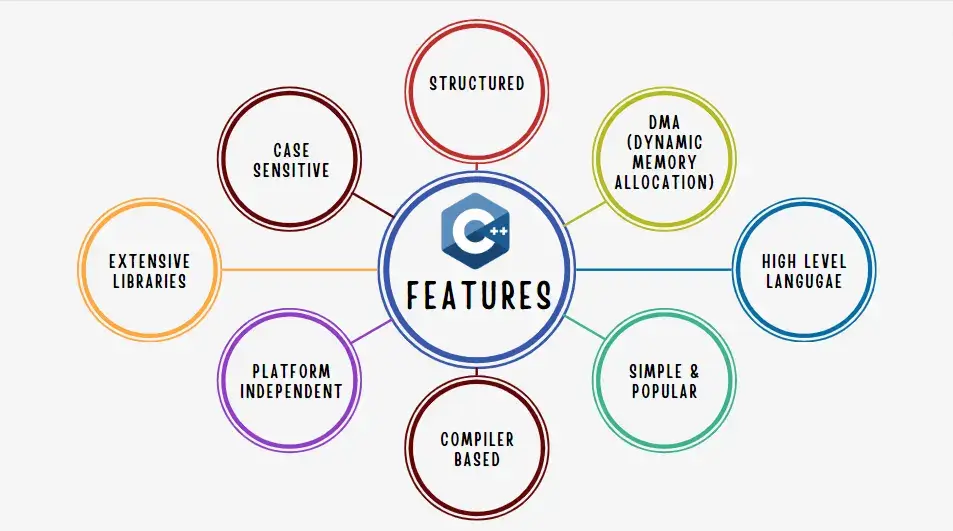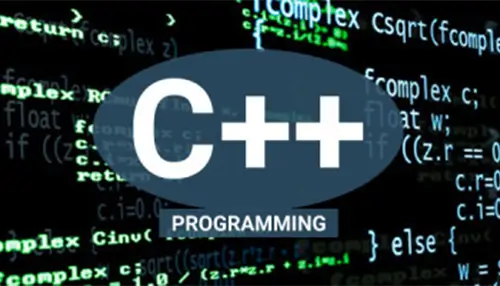In the world of software development, desktop applications play a crucial role in providing powerful and feature-rich solutions to users. With C++ being a versatile and efficient programming language, developing desktop applications for Windows becomes an exciting endeavor. In this blog, we will explore the realm of C++ Windows development, highlighting the benefits, tools, and resources available for developers to create robust and innovative applications on the Windows platform.
Understanding C++ Windows Development
C++ Windows development involves creating desktop applications specifically designed for the Windows operating system using the C++ programming language. Windows provides developers with an extensive and well-documented API known as the Win32 API. This API allows developers to access the underlying operating system functionalities and create applications with a high level of control and performance.
The Win32 API, often referred to as the Windows API, offers a wide range of features and services, including window management, user interface controls, file operations, networking, and more. With the Win32 API, developers can tap into the full potential of the Windows ecosystem and create applications that seamlessly integrate with the operating system.
Benefits of C++ Windows Development
1. Performance
One of the key advantages of C++ is its ability to produce highly efficient and fast applications. With its low-level access to hardware resources, direct memory manipulation, and optimized code execution, C++ excels in resource-intensive desktop applications. This performance advantage makes C++ an excellent choice for applications that require real-time processing, complex calculations, or high-speed data manipulation.
2. Platform Integration
C++ Windows development allows for seamless integration with various Windows components. Developers can interact with the Windows registry, file system, network stack, and user interface elements using the Win32 API. This level of integration empowers developers to create applications that fully leverage the capabilities of the Windows platform, providing users with rich and native experiences.
3. Compatibility
C++ applications can run on different versions of the Windows operating system without requiring significant modifications. The backward compatibility of Windows and the stable nature of the Win32 API ensure that C++ desktop applications can reach a broader user base and enjoy a wider deployment scope. This compatibility advantage allows developers to create applications that cater to a wide range of Windows users, without worrying about breaking changes or compatibility issues.
Essential Tools for C++ Windows Development
1. Integrated Development Environments (IDEs)
IDEs play a crucial role in facilitating efficient and productive C++ Windows development. One of the most popular IDEs for Windows development is Microsoft Visual Studio. Visual Studio provides a robust set of features, including advanced code editing, debugging capabilities, project management tools, and seamless integration with Windows SDKs. Its intuitive interface and extensive documentation make it an ideal choice for developers starting their journey in C++ Windows development.
2. Compilers
To compile and build C++ applications on the Windows platform, developers rely on the Windows Software Development Kit (SDK), which includes the necessary tools and compilers. The Microsoft C++ Compiler (MSVC) is the primary compiler used for Windows development. MSVC provides optimizations, compatibility with the Windows ecosystem, and support for the latest C++ language standards.
3. Win32 API Documentation
The Win32 API documentation is an invaluable resource for C++ Windows developers. It provides comprehensive information about functions, data types, structures, and constants required for Windows development. The documentation offers detailed explanations, usage examples, and guidelines for utilizing the Win32 API effectively. It serves as a reliable reference for developers seeking to understand the available Windows features and implement them in their applications.
4. Debugging Tools
Windows provides powerful debugging tools that aid in the development and troubleshooting of C++ applications. The Visual Studio debugger allows developers to step through code, inspect variables, set breakpoints, and analyze application behavior. Additionally, tools like WinDbg and Process Monitor offer advanced debugging capabilities for diagnosing complex issues.

Windows UI Frameworks for C++
1. MFC (Microsoft Foundation Classes)
MFC is a C++ framework developed by Microsoft that simplifies Windows UI development. It provides a set of classes and libraries for creating GUI-based applications, including dialog boxes, controls, and event handling. MFC abstracts the complexities of the Win32 API, allowing developers to focus on application logic and user interface design. Although MFC is older compared to newer UI frameworks, it still remains a viable choice for C++ Windows development, particularly for legacy applications or projects requiring direct Win32 API access. Know more!
2.WinForms
WinForms is another UI framework that enables developers to create Windows desktop applications using C++ with the .NET framework. WinForms provides a drag-and-drop designer and a rich set of controls for building user interfaces. It offers a more rapid development experience compared to the Win32 API or MFC, as it abstracts away low-level details and simplifies UI development using event-driven programming. WinForms applications run on the .NET Common Language Runtime (CLR), allowing for easier integration with other .NET languages and libraries.
3. Other Frameworks
Beyond MFC and WinForms, developers can explore additional C++ UI frameworks like Qt and wxWidgets. Qt is a popular cross-platform framework that supports C++ development and offers a wide range of features, including a comprehensive UI toolkit, networking, database connectivity, and more. wxWidgets is another cross-platform framework that provides C++ developers with a native look and feel across different operating systems, including Windows. Know more!
Additional Resources and Communities
1. Microsoft Developer Network (MSDN)
MSDN serves as a comprehensive resource hub provided by Microsoft, offering documentation, tutorials, code samples, and forums specifically tailored for C++ Windows development. It provides access to official Microsoft resources, such as API documentation, best practices, and design guidelines. MSDN is an invaluable resource for staying up to date with the latest developments in Windows application development.
2. Stack Overflow
Stack Overflow, a popular online community for developers, offers a vast repository of knowledge and a platform for asking questions and finding answers related to C++ Windows development. It serves as an excellent resource for troubleshooting issues, seeking guidance, and learning from experienced developers. Active participation in relevant C++ and Windows-specific tags can provide valuable insights and foster connections within the developer community.
3. GitHub
GitHub is a popular platform for version control and collaboration. It hosts numerous open-source C++ projects and libraries specifically designed for Windows development. Exploring these projects can provide valuable insights, code samples, and reusable components for your own C++ Windows applications.
Conclusion
C++ Windows development opens up a world of possibilities for creating high-performance desktop applications that leverage the capabilities of the Windows operating system. With the right tools & support of active communities, developers can embark on an exciting journey to build robust, feature-rich applications that cater to the needs of Windows users.
whether you are initiating a new project, improving an existing application, or considering a migration to the Windows platform, OdiTek is here to offer tailored solutions that cater to your precise needs. With our team of seasoned C++ developers with a proven track record of delivering successful projects, you can rely on our extensive expertise in C++ Windows development.
Reach out to us today and let us help you unlock the full potential of your software endeavors. Contact us now to get started!







